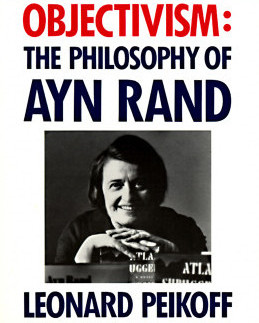Acknowledgments
Preface
What Philosophy is, and How to Study It
- Existence, Consciousness, and Identity as the Basic Axioms
- Causality as a Corollary of Identity
- Existence as Possessing Primacy Over Consciousness
- The Metaphysically Given as Absolute
- Idealism and Materialism as the Rejection of Basic Axioms
- The Senses as Necessarily Valid
- Sensory Qualities as Real
- Consciousness as Possessing Identity
- The Perceptual Level as the Given
- The Primary Choice as the Choice to Focus Or Not
- Human Actions, Mental and Physical, as Both Caused and Free
- Volition as Axiomatic
- Differentiation and Integration as the Means to a Unit-Perspective
- Concept-Formation as a Mathematical Process
- Concepts of Consciousness as Involving Measurement-Omission
- Definition as the Final Step in Concept-Formation
- Concepts as Devices to Achieve Unit-Economy
- Concepts as Objective
- Objectivity as Volitional Adherence to Reality by the Method of Logic
- Knowledge as Contextual
- Knowledge as Hierarchical
- Intrinsicism and Subjectivism as the Two Forms of Rejecting Objectivity
- Emotions as a Product of Ideas
- Reason as Man’s Only Means of Knowledge
- The Arbitrary as Neither True Nor False
- Certainty as Contextual
- Mysticism and Skepticism as Denials of Reason
- Living Organisms as Goal-Directed and Conditional
- Reason as Man’s Basic Means of Survival
- Reason as an Attribute of the Individual
- “Life” as the Essential Root of “Value”
- Man’s Life as the Standard of Moral Value
- Rationality as the Primary Virtue
- The Individual as the Proper Beneficiary of His Own Moral Action
- Values as Objective
- Independence as a Primary Orientation to Reality, Not to Other Men
- Integrity as Loyalty to Rational Principles
- Honesty as the Rejection of Unreality
- Justice as Rationality in the Evaluation of Men
- Productiveness as the Adjustment of Nature to Man
- Pride as Moral Ambitiousness
- The Initiation of Physical Force as Evil
- Individual Rights as Absolutes
- Government as an Agency to Protect Rights
- Statism as the Politics of Unreason
- Capitalism as the Only Moral Social System
- Capitalism as the System of Objectivity
- Opposition to Capitalism as Dependent on Bad Epistemology
- Art as a Concretization of Metaphysics
- Romantic Literature as Illustrating the Role of Philosophy in Art
- Esthetic Value as Objective
Epilogue: The Duel Between Plato and Aristotle
References
Index
